Theoretical Foundations
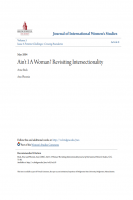
Brah, A., & Phoenix, A. (2004). Ain't I a woman? Revisiting intersectionality. Journal of International Women's Studies, 5, 75-91. https://vc.bridgew.edu/jiws/vol5/iss3/8/
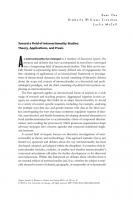
Cho, S., Crenshaw, K. W., & McCall, L. (2013). Toward a field of intersectionality studies: Theory, applications, and praxis. Signs, 38(4), 785-810. doi: 10.1086/669608
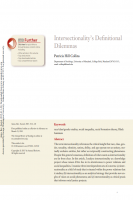
Collins, P. H. (2015, 2015/08/14). Intersectionality's definitional dilemmas. Annual Review of Sociology, 41(1), 1-20. doi: 10.1146/annurev-soc-073014-112142
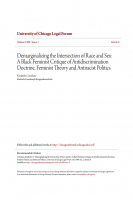
Crenshaw, K. W. (1989). Demarginalizing the intersection of race and sex: A Black feminist critique of antidiscrimination doctrine, feminist theory, and antiracist politics. University of Chicago Legal Forum (1), 139-167. http://chicagounbound.uchicago.edu/uclf/vol1989/iss1/8
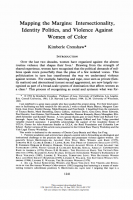
Crenshaw, K. W. (1991). Mapping the margins: Intersectionality, identity politics, and violence against women of color. Stanford Law Review, 43, 1241-1299. doi: 10.2307/1229039
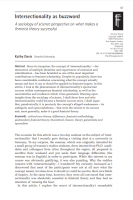
Davis, K. (2008, April 1, 2008). Intersectionality as buzzword: A sociology of science perspective on what makes a feminist theory successful. Feminist Theory, 9, 67-85. doi: 10.1177/1464700108086364
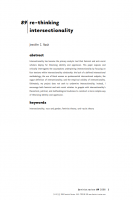
Nash, J. C. (2008). Re-thinking intersectionality. Feminist Review, 89, 1-15. doi: 10.1057/fr.2008.4 (Cambridge : ProQuest LLC, 2010) (Literature Online)
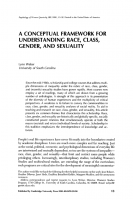
Weber, L. (1998). A conceptual framework for understanding race, class, gender, and sexuality. Psychology of Women Quarterly, 22(1), 13-32.

